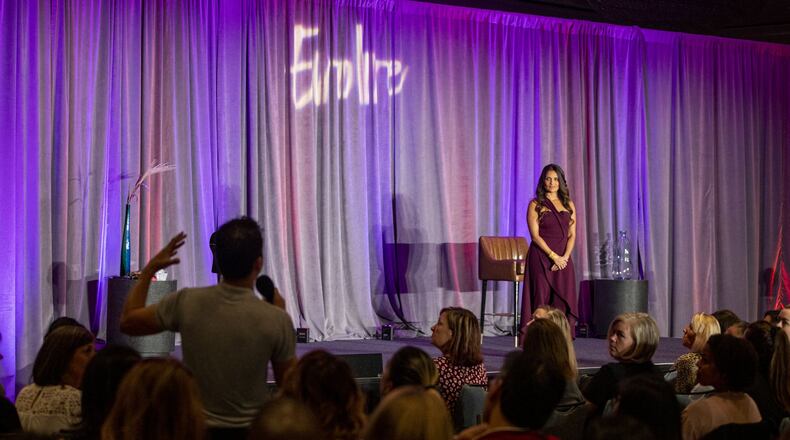Children are significantly more anxious and depressed than they were five years ago, and only part of that increase can be attributed to the COVID-19 pandemic, according to a March article in JAMA Pediatrics. Anxiety and depression among children from birth to 17 years old were on the rise even before 2020.
From 2016 to 2019, children’s anxiety increased 27% and depression increased 24%. By 2020, 5.6 million children were diagnosed with anxiety and 2.4 million were diagnosed with depression, wrote researchers who studied annual data from the National Survey of Children’s Health from 2016-2020.
It’s not surprising that parents and caregivers have also suffered a steady decline in well-being over the past five years. Study authors said there is a critical need to support the mental and emotional well-being of families.
For more than a decade, Shefali Tsabary has advocated for a revolution in parenting that dispenses with the traditional paradigms characterized by control, fear and punishment. The goal of conscious parenting is a greater emotional connection between parents and children, said Tsabary, who has a doctorate In clinical psychology and specializes in blending Western psychology and Eastern philosophy.
“If we are honest with ourselves about our own childhoods … then we will be able to admit that may not have been the best approach,” Tsabary said. “Most of us are very defensive about our childhood and we don’t want to be honest about it because that would mean that we were affected by it and we are not so put together and we suffered because of it or that our parents are not who we thought they were. It brings a confrontation with reality that we may not want to endure.”
What children really need from parents, she said, is not a laundry list of rules, an overload of shame and guilt or feeling silenced and oppressed. Children need to feel seen, to feel worthy and to know that they matter for who they are rather than their accomplishments. When they love themselves, they love life, Tsabary said, and parents help them to love themselves by being appreciative, authentically present and attentive.
Later this month, Tsabary will visit metro Atlanta for Evolve 2022, a three-day interactive summit to help individuals and parents reimagine new ways to reconstruct their lives and connect to others with more authenticity.
“We have all been through an unprecedented period of great anxiety and unknown, which has caused a lot of turmoil in our lives,” said Tsabary when we talked by phone. “We have managed to survive it, and Evolve is a celebration of that triumph and a renewed commitment to how we can live our lives more present and more emboldened.”
In her bestselling book “The Awakened Family” (Penguin, $18), Tsabary noted the increase in anxiety and depression among children. “When our young people carry the burden of having to be a certain way in order to please their parents, they can’t help but feel a high level of anxiety,” she wrote.
Children should not be investing in efforts to win their parents’ approval and love, she said; they should be free to develop naturally in alignment with their authentic being.
There are many myths that influence how we conduct ourselves in our most intimate relationships with spouses, children and ourselves. Tsabary’s work attempts to help us shed the illusions under which we live.
The first myth of parenting is that it is about the child. Conscious parenting, said Tsabary, requires parents to focus on connecting to themselves rather than focusing on children. “When we use our children to fulfill us, we cause them to separate from their own authentic life journey and meet our expectations, and this inevitably causes a disconnect within them and within our relationship,” Tsabary said.
Parents have to let go of the “my way or the highway” method of parenting without being indulgent or negligent, she said. This can be a particular challenge for parents of teenagers as the young people defy any sense of control and rebel against being oppressed.
“Parents don’t like that but teens are doing what they are meant to do developmentally,” Tsabary said.
With parenting, we place so much emphasis on the child’s behavior, accomplishments, wants and needs it does seem radical to think that focus is driven more by parents’ egos than by what is best for the child and his or her well-being.
But if that change in perspective can help bring less anxiety and depression to even a fraction of the millions of children struggling, then it’s a shift worth considering.
Read more on the Real Life blog (www.ajc.com/opinion/real-life-blog/) and find Nedra on Facebook (www.facebook.com/AJCRealLifeColumn) and Twitter (@nrhoneajc) or email her at nedra.rhone@ajc.com.
About the Author
Keep Reading
The Latest
Featured


